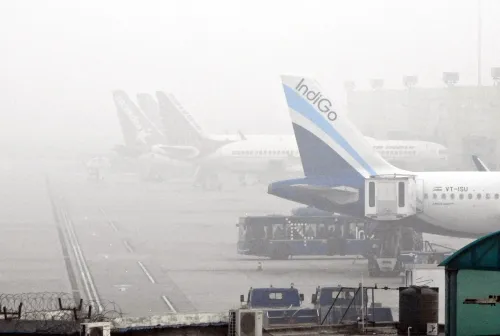How is the Global Transport Industry Adapting to Trade Protectionism?

Synopsis
Key Takeaways
- Trade protectionism is reshaping the global transport landscape.
- Tariffs influence the types of goods transported internationally.
- Geopolitical tensions can disrupt maritime trade routes.
- The ITF summit highlighted the need for resilience in transport strategies.
- The integration of AI in transport may follow international guidelines.
Seoul, May 24 (NationPress) The increasing uncertainties in trade, particularly tariff conflicts, have significantly influenced the global transport sector, which must now adapt to this evolving scenario, asserted the head of the inter-organisational transport organization.
"The ongoing global trade conflict impacts the types of goods we transport, leading to substantial changes in the commodities moved between nations," stated Kim Young-tae, Secretary General of the International Transport Forum (ITF), during a group media briefing at the 2025 ITF Summit held in Leipzig, eastern Germany.
Kim emphasized, "We must adjust to the varying conditions in the global landscape as we facilitate the transportation of goods and individuals," elaborating that tariffs influence the supply and demand dynamics of traded products, such as automobiles, as reported by Yonhap news agency.
He also noted that geopolitical tensions could disrupt and reshape maritime trade routes, highlighting the long-standing conflicts in the Red Sea, a crucial waterway in the Middle East.
In early April, the Trump administration imposed significant "reciprocal" tariffs on its trading partners, including a 25 percent duty on South Korea, temporarily pausing them for 90 days. Washington has also enforced sector-specific tariffs, such as 25 percent levies on all steel and automobile imports.
A report from global maritime consultancy Drewry anticipates that these U.S. trade measures will result in a 1 percent decrease in global container shipping volume by 2025.
"We are closely observing the situation and factoring in trade and climate change challenges to forecast the growth of the transport industry," he added.
The annual ITF summit was scheduled to conclude its three-day session on Friday, with global transport leaders from over 80 nations, including South Korea and the United States, gathering to explore strategies for enhancing transport resilience against global disruptions.
During the summit, South Korean Transport Minister Park Sang-woo shared the country's initiatives to encourage public transport usage and promote electric vehicles (EVs) to reduce carbon emissions, as reported by Park's office.
When asked how the private transport sector can integrate AI into their operations, considering the varying national standards regarding the "safe" and "responsible" use of technology, Kim mentioned that the ITF's policy recommendations could provide a framework for the international community's approach to this issue.








